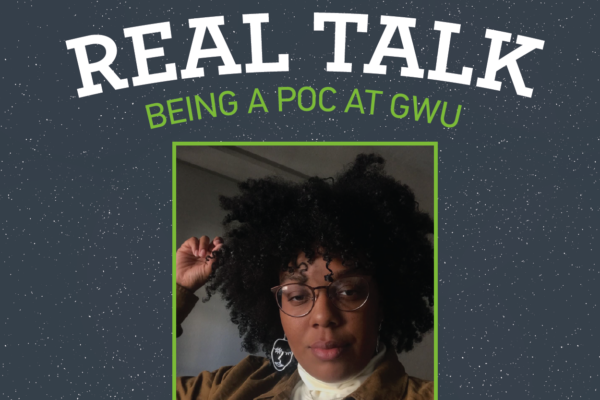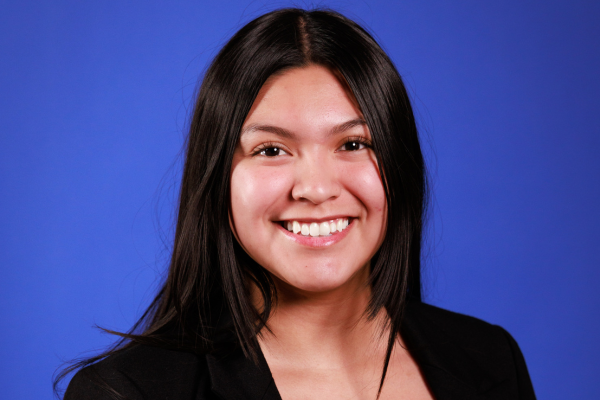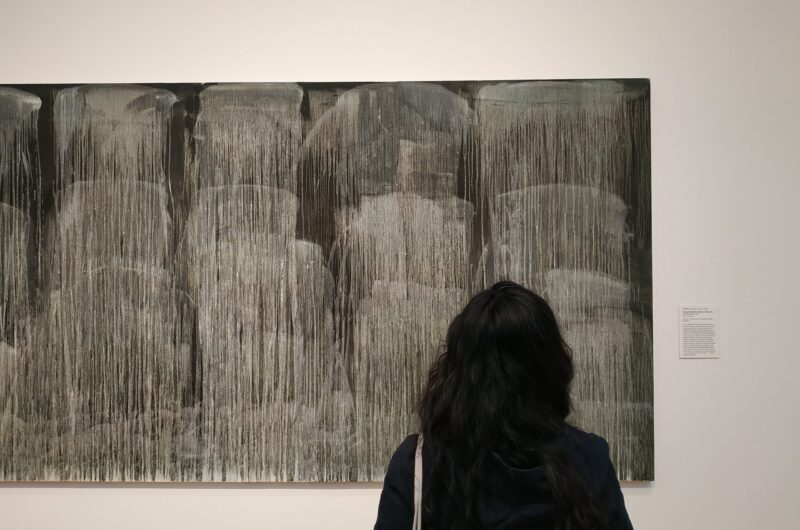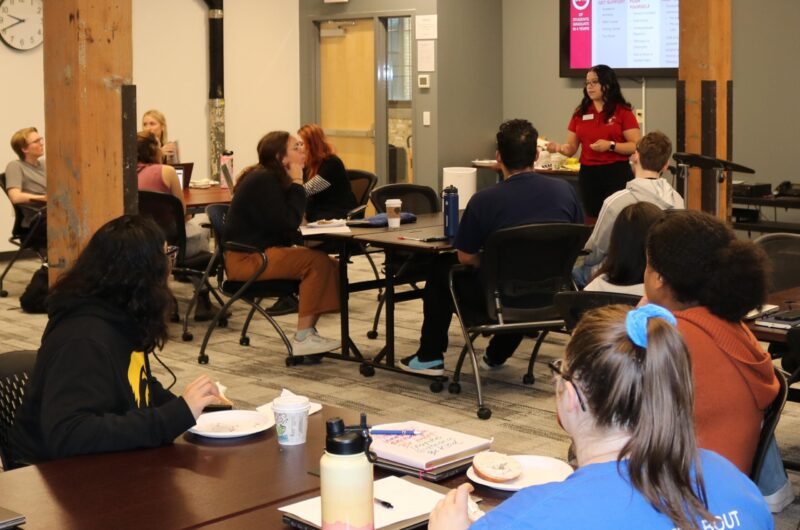The blog series: Real Talk: Being a POC at a PWI spotlights the untold stories and experiences of College Possible students of color. These stories are not indicative of every student of color’s experience at their PWI. However, other students of color reading may find parallels in these accounts. Due to having similar experiences at their respective campuses. Every person’s story carries value in the holistic experience colleges have to offer. Thank you, Amunique, for speaking to us about diversity at George Washington University.
PWI or HBCU
When Amunique was first considering attending George Washington University (GWU), she mainly thought about the practicalities associated with the school. It was in a central, metropolitan location of DC. Being close to the White House and other official government buildings was a major perk. It meant she’d also be in close proximity to job opportunities, maybe internships that would help establish her as a contract lawyer.
She liked the idea of being smack dab in the political thick of it in the country’s capital. And while she did also consider Howard University—an Historically Black University or HBCU near GWU—Amunique believed that GWU was in a safer area and more funding for resources. Resources and opportunities that would support her professional goals. “It’s a decision I get shamed for often,” she laughs. “I still don’t really know if I made the right choice.”
The lack of black representation on campus will intimidate some POC students. It can get hard if you’re not self-motivated and don’t learn to hold your own.
In the business of being black
When asked about her freshman year, Amunique readily admits to experiencing a culture shock due to a lack of diversity at GWU. Many of her new peers were white students who came from money, a demographic she wasn’t familiar with. “The lack of black representation on campus will intimidate some POC students. It can get hard if you’re not self-motivated and don’t learn to hold your own.”
Being a business major was essential for her track to become a corporate contract lawyer. However, specializing in a field where there isn’t much POC representation meant that statistic would also be reflected in her business classes. The majority of which were predominantly white and male. “I’ve looked around DC for black corporate law firms, but it’s just as rare as looking in Austin honestly. I haven’t found one that exists yet.” But that, Amunique says, is expected.
Black in the classroom
“Where it gets really interesting is I’m an English minor, so I have a lot of literary-based conversations in class about social injustice and race. I get to hear a lot of white students’ perspectives, and it’s interesting to see who says what and when.” Amunique begins to tell me the story of a time a professor was reading aloud in a class and he said the ‘N’ word multiple times solely because it was written in the text.
“I was one of the students of color who said something to him after class, but he didn’t start to make a big deal out of it until white students in the same class started criticizing him.” She’s careful to mention that this isn’t always the norm. The professor was no longer permitted to teach that literature course. Additionally, the university recently hired a DEI (diversity, equity, and inclusion) specialist to reduce race-related issues. These issues often inspire infamous student-led protests fueled by the constant political controversy in DC.
Black women are so used to carrying heavy workloads that other people could never understand or take on themselves. I get my work ethic from my mom.
Working during college
Amunique says that despite being at GWU for a couple of years, she has yet to receive a scholarship from them. She has applied numerous times and meets the appropriate qualifications. “I have some loans, of course, but I work to pay for school. I don’t want to take on more debt if I don’t have to.”
This summer Amunique is working two jobs. A five-hour break follows her 9-to-5 eight-hour shift as an AmeriCorps Summer Bridge Member with College Forward. Then she works at a gym from 10 PM to 5 AM. I ask her if this level of intensity is because the summer gives her more free time to work, but she assures me her schedule tends to be this way all year round. “It’s weird; sometimes, I would come home from work late in the evening and see my roommate chilling, watching Netflix. But I’d have to head right back out to the library to study.” She shared that her peers believe this to be part of her amazing work ethic, but Amunique knows it runs deeper than that for women of color.
“Black women are so used to carrying heavy workloads that other people could never understand or take on themselves. I get my work ethic from my mom. She was a single parent, and she, too, had to work multiple jobs while raising my sisters and me. It’s something that I have grown accustomed to.”
Social life a GWU
Between working and studying, Amunique tries her best to have a social life on GW’s campus. She shared that she fell into a depression during the first semester of her freshman year. The next semester she aimed to join an organization to make new friends. She joined co-ed fraternities that helped her by providing communities of folks who shared her interests and goals. These communities also came from backgrounds she could relate to and be empathetic towards.
When I asked what the campus culture was like, Amunique says the university has a very strong black community composed of individuals all throughout the African diaspora, but that she still has a hard time connecting. “I wanted to join a sorority at first because I had family in sororities and thought it would be cool to rush. But they’re so hard to get into if you don’t fit their mold. There’s a lot of hoop-jumping that really detracts from the community and networking opportunities.”
The school itself doesn’t actually do much to push for inclusion–it’s the orgs led by POC’s and the school’s newspaper that does the majority of the work.
There’s more to be done
When asked about diversity at GWU, she immediately responded that GWU is only doing the bare minimum. “The school itself doesn’t actually do much to push for inclusion–it’s the orgs led by POC’s and the school’s newspaper that does the majority of the work.” She goes on to say GWU needs to spread awareness around the impact race-related issues have on students of color. More importantly, why those issues occur in the first place.
She also believes information on how to achieve equity should be more accessible to students. That way they can feel more confident and knowledgeable about topics that can be intimidating. “I want to see more seminars! I want to see black speakers coming in to talk about blackness, and I want to see more representation in general.”
Parting words for POC students
When our interview comes to a close, I ask Amunique what advice she would give to a young woman of color like herself, who was considering attending George Washington University. The first thing she says is to be true to yourself. “The school is built to make you conform to the status quo, but it’s okay if you’re not white, or wealthy or either.” She tells me that you can’t be afraid to offer a different perspective to folks who might not get it otherwise. Learning from others and vice versa is part of what makes you socially aware and connected to others as an individual.



